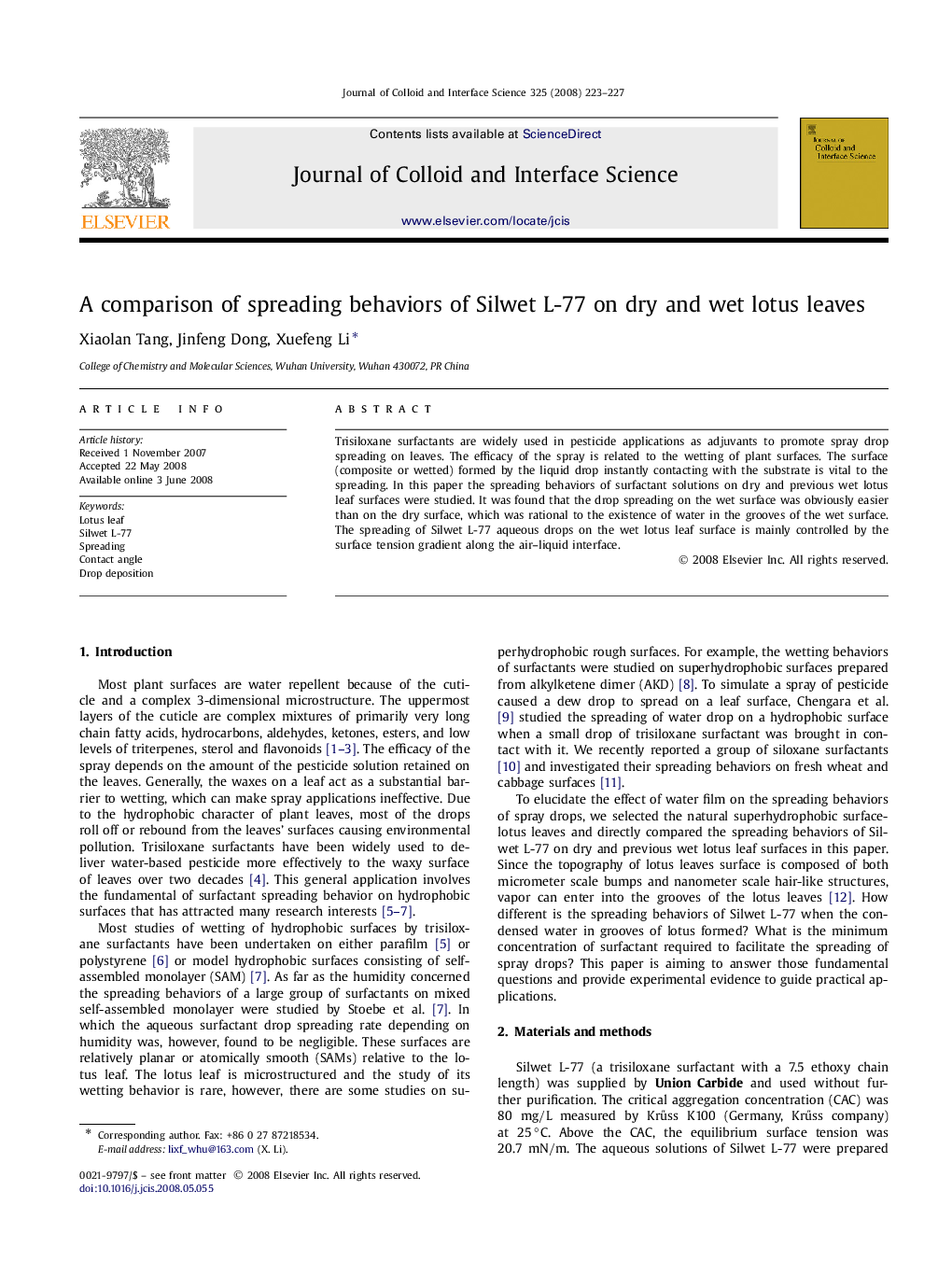| Article ID | Journal | Published Year | Pages | File Type |
|---|---|---|---|---|
| 611063 | Journal of Colloid and Interface Science | 2008 | 5 Pages |
Trisiloxane surfactants are widely used in pesticide applications as adjuvants to promote spray drop spreading on leaves. The efficacy of the spray is related to the wetting of plant surfaces. The surface (composite or wetted) formed by the liquid drop instantly contacting with the substrate is vital to the spreading. In this paper the spreading behaviors of surfactant solutions on dry and previous wet lotus leaf surfaces were studied. It was found that the drop spreading on the wet surface was obviously easier than on the dry surface, which was rational to the existence of water in the grooves of the wet surface. The spreading of Silwet L-77 aqueous drops on the wet lotus leaf surface is mainly controlled by the surface tension gradient along the air–liquid interface.
Graphical abstractWater modified wetting behavior on lotus leaf. It is clear that entrapped water has a significant effect on lotus wetting behavior.Figure optionsDownload full-size imageDownload as PowerPoint slide
